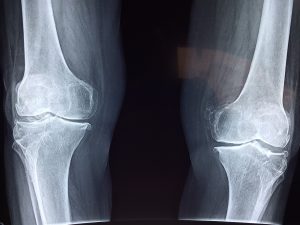Did you ever wonder what long-term use of over the counter pain medications does to your joints?
Another study has shown that long-term use of pain relievers was associated with increased progression of osteoarthritis and eventually lead to an increase in total knee replacements. This data comes from the Osteoarthritis Initiative, a study following 4,796 subjects who are at risk for osteoarthritis. The 2016 study, written through the department of radiology at Johns Hopkins University School of Medicine, compared two groups with similar health markers based on pain, stiffness, and disability and then followed them over an 8-year period. At the end of the study, the group who used over the counter pain medications were twice as likely to have progressive osteoarthritis and total knee replacement versus the group that didn’t use any at all.
“Patients who used over the counter pain medications were twice as likely to have progressive osteoarthritis and total knee replacement versus the group that didn’t use any at all.”
At Oregon Regenerative Medicine we use Platelet Rich Plasma (PRP) and autologous adipose cell therapies to help restore function and relieve pain in joints affected by osteoarthritis. Studies have shown that the main therapeutic effects of PRP and Adipose tissue graft therapies rely on the delivery of a high concentration of bioactive growth factors, which stimulate repair and regeneration. This is the exact opposite when compared to long-term use of over the counter pain medications. If you have questions about our treatment options, please contact us and learn more about effective alternatives for the treatment of osteoarthritis.
“Studies have shown that the main therapeutic effects of PRP and stem-cell therapies rely on the delivery of a high concentration of bioactive growth factors, which stimulate repair and regeneration.“
Reference: Nima Hafezi-Nejad, Ali Guermazi, Frank W. Roemer, et al. Long-term Use of Analgesics and Risk of Osteoarthritis Progressions and Knee Replacement: Propensity Score-Matched Cohort Analysis of Data from the Osteoarthritis Initiative. Journal of Osteoarthritis and Cartilage. April 2016




